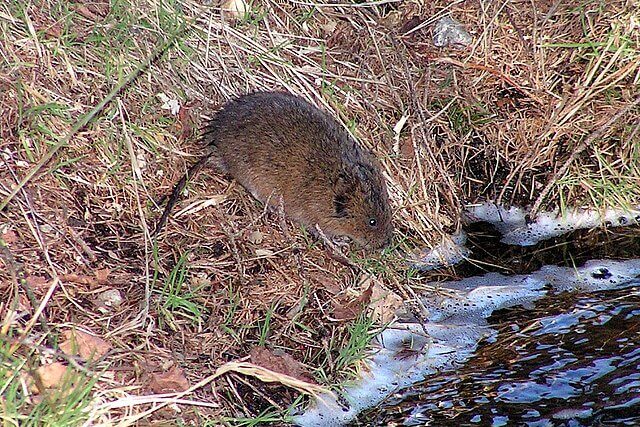
In a discreet location near Haweswater, over 200 captive-bred water voles have been released in a determined effort to reestablish a thriving population of this endangered species in Cumbria.
Conservationists and dedicated volunteers carefully transported these semi-aquatic mammals to their new habitat, placing them in temporary soft-release pens to allow them a brief period to adapt to their surroundings. Notably, ten of the older voles were set free directly into the water.
Decimated over recent decades, the water vole species once thrived across the UK. This particular reintroduction marks a significant milestone in the Lake District, as previous attempts have focused on different regions.
In the days to come, volunteers will monitor the pens, ultimately removing them once the newly released water voles have transitioned to their own burrows. This undertaking is the culmination of a comprehensive two-year project aimed at restoring a river valley within the Haweswater Reserve, managed collaboratively by the Royal Society for the Protection of Birds and United Utilities.
The charity emphasises that over the past century, the UK’s water vole population plummeted from an estimated eight million to roughly 132,000. These remarkable creatures vanished from 94% of the sites they once occupied.
One pivotal aspect of the restoration effort in Haweswater has involved managing the population of American mink, which were initially introduced to Britain in the 1920s for fur farming. Escaping from these farms, the mink began breeding in the wild by the mid-1950s. Unfortunately, the water voles’ defence mechanisms, like diving beneath the water’s surface and creating a dirt screen or retreating to their burrows, proved inadequate against the mink’s relentless hunting. Female minks, capable of infiltrating water-vole burrows, could decimate entire colonies and populations along waterways.
Dr. Ashley Lyons, a conservation scientist at the RSPB, emphasised that the water vole was a “missing piece” in the landscape that this project aims to restore.
“Through their burrows, they dig up the soil and bring nutrients to the surface, which helps vegetation,” she said.
“They also nibble plants, leaving room for other plants to come through. And they’re an important part of the food chain. It’s fabulous to see them back here.”
This joint initiative, involving the Eden Rivers Trust, Cumbria Connect, and the Environment Agency, plans to release a total of approximately 350 voles at two distinct locations. Dave Greaves, representing the Eden Rivers Trust, expressed excitement at the opportunity to reintroduce these captivating creatures to the Cumbrian landscape.
“It’s lovely to see them back where they should be,” he said.
——————————————————————————
At Natural World Fund, we are passionate about stopping the decline in our wildlife.
The decline in our wildlife is shocking and frightening. Without much more support, many of the animals we know and love will continue in their decline towards extinction.
When you help to restore a patch of degraded land through rewilding to forests, meadows, or wetlands, you have a massive impact on the biodiversity at a local level. You give animals a home and food that they otherwise would not have had, and it has a positive snowball effect on the food chain.
We are convinced that this is much better for the UK than growing lots of fast-growing coniferous trees, solely to remove carbon, that don’t actually help our animals to thrive.
This is why we stand for restoring nature in the UK through responsible rewilding. For us, it is the right thing to do. Let’s do what’s right for nature!
Donate today at https://naturalworldfund.com/ and join in the solution!

